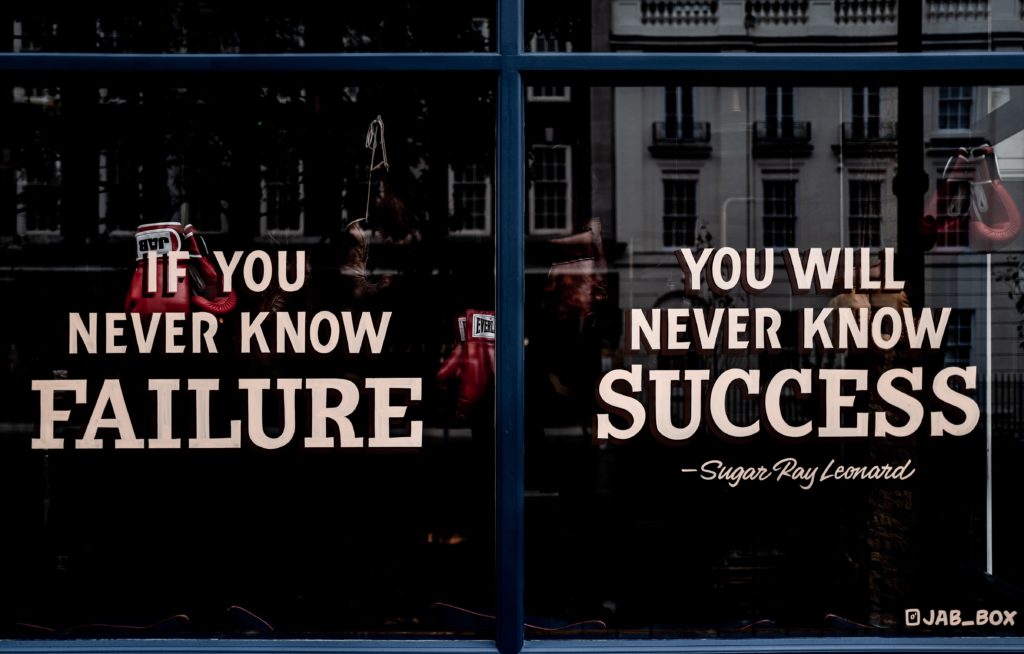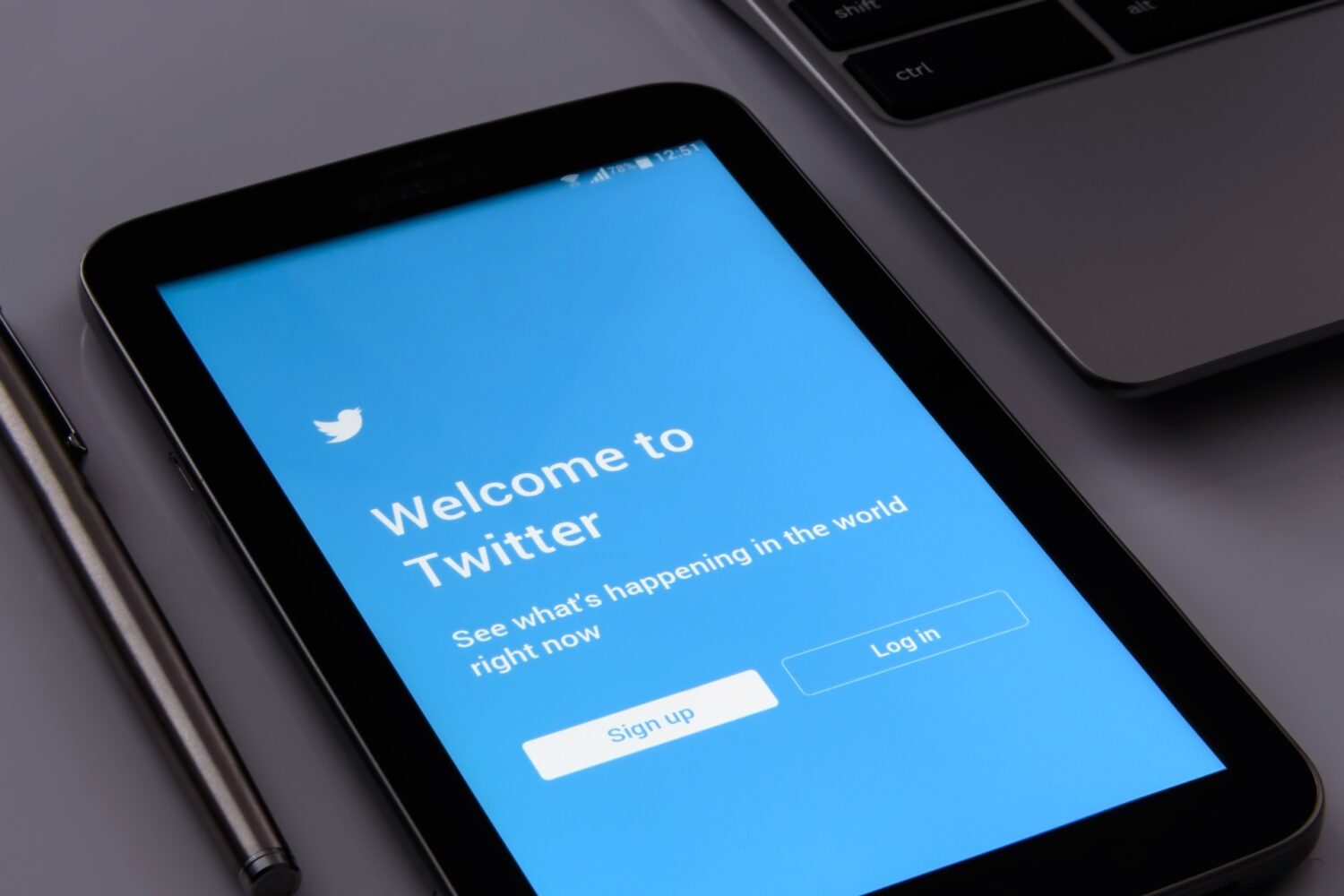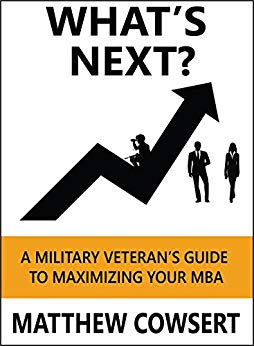Events & Promotions
| Last visit was: 02 May 2024, 00:18 |
It is currently 02 May 2024, 00:18 |

Customized
for You
Track
Your Progress
Practice
Pays
08:30 AM PDT
-09:30 AM PDT
10:00 AM EDT
-10:30 AM EDT
09:00 PM IST
-10:30 PM IST
12:00 PM EDT
-11:59 PM EDT
06:45 AM PDT
-12:00 PM PDT
12:00 PM EDT
-01:00 PM EDT
08:00 PM PDT
-09:00 PM PDT
| FROM Stacy Blackman Consulting Blog: Big Career Decisions |
 “FRESH IDEAS FROM THE BLACKLIGHT” SBC’s Weekly Newsletter for Professionals Your life will be marked by many career decisions. From your first job out of college until retirement, you’ll be assessing your professional progress periodically to figure out when a turning point is near. In some cases, clear signs will show you it’s time for a change asap. But more often, major career decisions trigger hesitation and doubts that you’ll have to work through before making a move. Today we’re sharing strategies to make that decision-making process a bit easier. First, thoroughly assess your interests, values, and personality. Our interests change over time, and that can initiate a career pivot. What transferable skills do you have, and how can you connect them to new areas of interest? Next, think about your personality. Do you prefer lots of interactions at work or flying solo? Are you interested in creative tasks or managing practical matters? After all, one person’s dream job can be another’s nightmare scenario. Finally, consider the causes you care about and what activities bring on the bliss. Nowadays, most people want their work to have a meaningful impact on the world. When you define your values, you can make career decisions that connect to them in a way that offers greater life satisfaction.  Next, consult your whole self. Timothy Butler, director of career development programs at Harvard Business School, has a new book on navigating significant transitions. In The Four Elements: Finding Right Livelihood in the 21st Century, Butler guides readers to tap into their ‘full self” when making career or other major life changes. “Most of us, when faced with a life decision, fall back on our analytical intelligence,” Butler explains in this HBS Working Knowledge interview. “We try to use the brute force of thinking to push the situation forward.”  Instead, he offers a different framework to help people handle career transitions. He labels these vital elements as Identity, Community, Necessity, and Horizon. Butler also homes in on the relevant questions we can answer to illuminate the path forward. Identity. Think about personal qualities, interests, skills, and our place in the world. Ask yourself: “What work roles will allow me to express my deeply embedded life interests?” and “What are the signature skills that I bring to any life situation?” Community. Surround yourself with people who bring out the best in you. Ask yourself: “What types of people and what organizational cultures will allow me to thrive and make my biggest contribution?” Necessity. This reality check acknowledges that our decisions need to make sense in the real world. And allow us to pay the bills. Ask yourself: “What are the nonnegotiable obligations and constraints that bear upon my current work and life choices?” Horizon. This is the bigger picture element that touches on our most profound sense of values, meaning, and priorities, Butler says. Ask yourself: “How do I understand and move closer to life in its fullest?”  Finally, put your life and career decisions to the “Regret Test.” Whether you’re contemplating a career switch, a return to school, or other important life decisions, the regret test can help. Basically, you ask yourself if the future you would regret that you didn’t take that leap of faith when the opportunity arose. There may be a risk of failure, but what will you regret more: trying and failing, or always wondering what could have been? Because as Sydney J. Harris once said: “Regret for the things we did can be tempered by time; it is regret for the things we did not do that is inconsolable.” Huzzah! You made it to the end of the post! This post on making big career decisions appeared initially in the Blacklight, our weekly newsletter for professionals. At the Blacklight, we aim to illuminate with every dispatch that lands in your inbox. If you’re thirsty for guidance to help you slay it at work or as a student and move your goalposts closer, sign up today! The post Big Career Decisions appeared first on Stacy Blackman Consulting - MBA Admissions Consulting. |
| FROM Stacy Blackman Consulting Blog: B-Schooled Podcast Episode #131: MBA Career Goal Mad Libs |
 You may remember Mad Libs from childhood, the absurd word game where you fill in the blanks to make an entertaining story. But don’t let the playful title of this podcast fool you—the content we discuss today is anything but silly. We’re using the Mad Libs concept as a powerful FRAMEWORK to help you think about how best to articulate your short and short- and long-term career goals in specific, authentic, bold, and realistic ways. If you have ever been intimidated about fleshing out your short and long-term career goals, this episode is for you! This B-Schooled episode can be found here, or take a listen on any of the major podcast platforms below. B-Schooled is available on most major podcast apps, including: Apple Podcasts Spotify Stitcher TuneIn Please be sure to subscribe to B-Schooled so that you don’t miss a thing. Also, if there’s something you’d like for us to cover in a future episode, please email podcast@stacyblackman.com. We’d love to hear from you! Are you following us on all the socials? Everyone (and their mother) is on TikTok these days, and SBC is ready to join the party. Hit us up @stacyblackmanconsulting starting November 1st when we officially launch the channel! The post B-Schooled Podcast Episode #131: MBA Career Goal Mad Libs appeared first on Stacy Blackman Consulting - MBA Admissions Consulting. |
| FROM Stacy Blackman Consulting Blog: 4 Reasons to Write an Optional Business School Application Essay |
|
[img]https://www.stacyblackman.com/wp-content/uploads/pexels-mentatdgt-2029796-1500x1000.jpg[/img] When it comes to the optional business school application essay, MBA hopefuls often wonder if it is truly optional. Many applicants feel an obligation to write something and struggle with what that something should be. Some programs explicitly state that applicants should use this essay only to address extenuating circumstances. Meanwhile, others ask more broadly whether there is anything else about your candidacy you would like to share with the admissions committee. Our advice regarding the optional essay is to first complete your entire application package, except for the optional essay. Don’t worry about that piece of the puzzle just yet. Once you have finished, review your application and see if there’s something extra you would like to communicate. Make sure that you cannot address the issue elsewhere in the application. However, if you feel something is missing, use the optional essay as an opportunity to add what you want to share. Consider the following advice within the context of your overall strategy and the schools you are considering. These areas are prime material for the optional essay. [img]https://www.stacyblackman.com/wp-content/uploads/wes-hicks-4-EeTnaC1S4-unsplash-1-1500x1000.jpg[/img] Reasons to Write an Optional Business School Application Essay [b]Academic Weaknesses[/b] If you have a C grade or below [url=https://www.stacyblackman.com/blog/red-flag-mba-application/]on your undergraduate transcript[/url], the admissions committee will want to know why. Your task is to make them feel comfortable that the low grade is an outlier in your overall academic record. Strike an upbeat tone here and avoid excuses. Make sure to emphasize your improved performance later in your college career or subsequent work or classes since college. Briefly explain the situation in the optional business school application essay and focus the balance of your essay on looking forward. Show what you have done recently to prove your skills and intelligence. For example, if you have a new, higher GMAT score or took classes in calculus or statistics, you have a solid case for improved academics. If you had a disciplinary issue in college, you should spend most of the essay conveying what you learned from the experience. Show that you’ve been an ideal citizen ever since. If extenuating circumstances affected your academic performance, definitely explain what those were. But if it was a simple immaturity, you must also own up to that. Though embarrassing to admit, if you don’t provide those details, the admissions committee will make assumptions that may not be in your favor. [img]https://www.stacyblackman.com/wp-content/uploads/Mind-the-Gap2-734x434.jpg[/img] [b]Employment Gaps or Major Career Changes[/b] You don’t have to explain a short gap between school and a secured job. But [url=https://theblacklight.co/2020/09/17/relaunch-after-career-gaps/]you should address any months-long gap[/url] between the two positions. Otherwise, the admissions team may assume you spent that time binge-watching Better Call Saul. Did you use that time off to volunteer in Guatemala or care for an ailing parent? Perhaps you used the time away to focus on an entrepreneurial dream, unencumbered by the 9-to-5 grind. Ideally, you can point to additional education, training, volunteering, or traveling that you engaged in while unemployed. If you [url=https://www.usnews.com/education/blogs/MBA-admissions-strictly-business/2014/12/05/navigate-a-job-change-while-applying-to-business-schools]recently switched careers[/url], you may feel concerned that the admissions committee won’t see why an MBA would help further your new professional aspirations. In that case, use the optional business school application essay space to make an airtight argument for why you want to go into this new field. Show that the decision was not capricious but rather reasoned and well-thought-out. [b]Choice of Recommender[/b] Business schools almost always ask for a [url=https://www.stacyblackman.com/blog/recommendation-letter-mba/]letter of recommendation[/url] from a current supervisor. The reason? Typically, this is the best person to comment on your abilities and leadership skills as they stand today. However, not every applicant feels comfortable asking their employer for a recommendation letter. [img]https://www.stacyblackman.com/wp-content/uploads/eunice-lituanas-bpxgyD4YYt4-unsplash-734x413.jpg[/img] Perhaps they aren’t ready to let their boss know of their MBA plans. Or, a personality conflict might not lead to the most glowing recommendation. Sometimes, the issue is that the applicant hasn’t worked with the supervisor long enough for them to comment meaningfully on the candidate’s performance. Whatever the reason, you should briefly address your decision not to seek a recommendation from your current supervisor in the optional essay space. The admissions committee understands the various circumstances which may prevent it. But you still need to explain why to eliminate any doubts or wrong assumptions about the quality of your working relationship with your employer. [b]Information That Adds to Your Candidacy[/b] This is where you can introduce information about yourself that you couldn’t find a way to incorporate elsewhere. If you are a reapplicant, the optional essay is the ideal place to explain what you have done to strengthen your case for admission since your last application. Think of things such as receiving a promotion, which would signal career development and leadership. Even if you don’t have a clear-cut story to describe, you can use this space to explain how you have improved your thinking, career goals, or fit. [img]https://www.stacyblackman.com/wp-content/uploads/rock-staar-HDlX8OZR5K8-unsplash-1500x1000.jpg[/img] Finally, if you don’t have a weakness to address and the school has an open-ended optional essay question, this is an opportunity to provide information you couldn’t work into the other required essays. For example, this is a chance to showcase your unique profile if you have an unusual background, hobby, or extracurricular experience to share. Yes, the optional business school application essay truly is optional. So take advantage of it if necessary, but exercise good judgment and restraint. The post [url=https://www.stacyblackman.com/blog/4-reasons-to-write-an-optional-business-school-application-essay/]4 Reasons to Write an Optional Business School Application Essay[/url] appeared first on [url=https://www.stacyblackman.com]Stacy Blackman Consulting - MBA Admissions Consulting[/url]. |
| FROM Stacy Blackman Consulting Blog: Answering MBA Essay Questions Completely |
 SBC consultants often review initial essay drafts and feel moved by a particular story or impressed by the client’s accomplishments. Nevertheless, we let them know that they’ll need to return to the drawing board to overhaul their work. When this happens, our comments are usually along the lines of, “Love this, but . . . you’re not actually answering the MBA essay questions the school has asked!” That is one of the most common missteps we see as extraordinarily talented candidates pull their materials together. They become intent on positioning themselves in a particular way or highlighting a specific achievement. As a result, they fail to respond directly to what their target program has asked, either partially or entirely. For example, Stanford inquires, “What matters most to you, and why?” In our view, the “and why” part is more important than the “what.” But many applicants overlook it when they begin to outline their responses. Likewise, Kellogg asks, “Provide a recent example where you have demonstrated leadership and created lasting value. What challenges did you face, and what did you learn?” We find applicants usually have lots to say about a time they’ve shown leadership. Yet they forget to mention the setbacks they had to overcome in the process or include a summary of what they learned from the experience. So, as you get ready to buckle down for Round 2, take a step back and ensure you’re actually answering MBA essay questions as they appear in the application. Remember:  Until next time, The team at Stacy Blackman Consulting ***Do you want to stay on top of the application process with timely tips like these? Please subscribe to our weekly newsletter, and you’ll receive our expert advice straight in your mailbox before it appears on the blog, plus special offers, promotions, discounts, invitations to events, and more. The post Answering MBA Essay Questions Completely appeared first on Stacy Blackman Consulting - MBA Admissions Consulting. |
| FROM Stacy Blackman Consulting Blog: The 5 Hardest MBA Interview Questions and Tips for How to Answer Them |
 Euphoria is the first feeling most MBA applicants experience upon receiving an interview invitation from the b-school of their dreams. What follows is often a mixture of anxiety, nervousness, and, in extreme cases, dread. If you blow your interview, your admission odds plummet. You can ensure that doesn’t happen by practicing for the exchange and reviewing some of the hardest MBA interview questions you may encounter. The 5 Hardest MBA Interview Questions Certain schools infamously ask applicants out-of-left-field questions, such as, “If you were a tree, what kind would you be?” While you can’t prepare for every random query, you can prep for some of the tough yet common questions. 1. What is your biggest weakness? No one relishes the notion of painting themselves in a less-than-flattering light. The key is to address your weaknesses in a way that shows self-awareness and dedication to improvement. Say you have a shortcoming in your application, such as a lack of community service or middling undergrad academic performance. Use the interview to remove doubt about any potential red flags. Explain how you have already begun the hard work of improving on your negative traits and that you have a plan for further progress while at business school through specific classwork and activities. Ultimately, you can use this question to show how you’ve used a weakness as motivation to grow personally or professionally. Far from being a disservice, this sincerity can enhance your shot at admission into a top MBA program. When you convey an honest assessment of your weaknesses, any strengths mentioned during the interview will have more credibility. 2. Tell me about a time you failed. Business schools realize that failure represents a learning opportunity for everyone, from companies to individuals. In this case, the MBA interviewer is asking about a specific event, so choose your anecdote wisely. Refrain from sharing pseudo-failures that backfire and show your poor judgment.  Your example can come from a professional setting or something from your personal life. We once worked with an applicant from a country that has different ethical standards than the United States regarding plagiarism. During his undergrad at an American university, he was accused of plagiarizing parts of a major college term paper—something that in his home country is quite normal among students. He failed the course and had to repeat it, and the entire experience was hugely humiliating and humbling for him. In the end, he turned that negative episode into something positive when he later ran for student government and championed change in plagiarism standards and communications at the school. When you discuss your failure, acknowledge your role in the incident, explain your reaction and discuss what lessons you learned from the experience or what you wish you could have done differently. Don’t blame others; your overall tone should come across as positive. As you prepare for MBA admissions interviews, focus on discussing how you used the occasion as an opportunity to grow. It just might be the factor that differentiates your candidacy amid a sea of seemingly “perfect” applicants. 3. Describe a poor manager you’ve had. This question requires a fair amount of diplomacy. It’s a delicate balance of assigning blame to another person and articulating your thoughts on good management and leadership. Your best bet is briefly explaining—with no bitterness—your issues with the manager and moving on to the positives. Discuss how you adapted, became empathetic, reached a compromise, or confronted the situation to ultimately achieve a favorable outcome.  One of our clients previously worked for a manager with whom she got along well on a personal level but who did not provide constructive feedback on mistakes. What’s worse, she frequently opted to just re-do work herself rather than explaining or delegating assignments. Our applicant eventually discovered she was working in a bubble, unwittingly making several errors. This was a blissfully ignorant situation and not an environment where she could grow her competencies. This is one of the hardest MBA interview questions, and your interviewer uses it to judge your fitness with the program. In b-school as in life, you will encounter difficult classmates and colleagues. How you handle these types of situations shows your character and how you might behave with your cohort once admitted. 4. Tell me about an ethical dilemma you faced. MBA programs want to prepare students to analyze business situations that raise moral dilemmas or call for unpopular actions. The ethical dilemma question provides the interviewer with a glimpse of your unique moral filter and a gauge on how life has tested you. Choose your ethical dilemma carefully to make sure the situation has no clear-cut answer. Remember, it doesn’t need to be a large-scale conundrum. Situations that rest in the gray area are most effective with this sort of question, as those circumstances require leadership, nuance, and maturity. For example, we consulted with an applicant who, in a previous position, had discovered that his bosses were fudging the numbers of valuation reports to make a client happy, but which were not truly accurate for investors. He had to decide whether to confront his bosses or the client about the lack of integrity in the reports.  When answering this type of question, you should describe the situation briefly, explain how you responded and the action you took, and then reflect on what you learned from the experience. The ethical dilemma question on the spot can trip up even the savviest of MBA applicants. Seek input from friends, family, or your application adviser to ensure you appear sincere and mature in your chosen example. 5. Tell me about yourself. This seems like an easy question, right? But we think it’s one of the hardest MBA interview questions because it’s so open-ended. Invariably, applicants will ramble on and get lost in the weeds. You can avoid this fate by structuring your thoughts beforehand and coming up with your “elevator pitch.” That’s the one-to-two-minute speech where you convey who you are and what motivates you, your education, work accomplishments, and passions, why you want an MBA, and what professional goals the degree will help you reach. Your interviewer wants to assess whether you would contribute enthusiastically to the program. So, practice your MBA elevator pitch with multiple audiences until it sounds conversational, authentic, and most of all, memorable. A solid MBA interview won’t necessarily get you in, but a poorly conducted one might keep you out of your dream school. Do your homework and use these tips for the hardest MBA interview questions to boost your chances. The final step is simply to relax and enjoy the process. The post The 5 Hardest MBA Interview Questions and Tips for How to Answer Them appeared first on Stacy Blackman Consulting - MBA Admissions Consulting. |
| FROM Stacy Blackman Consulting Blog: B-Schooled Podcast Episode #132: MBA Interview Advice (Part 1 of 2) |
 In this replay of one of our most popular B-Schooled episodes, our host Erika talks with Beth Tidmarsh about all things related to MBA interviews. Tidmarsh is a former Kellogg admissions director and one of Stacy Blackman Consulting’s expert Flight Testers. They have a discussion about:
Listen to B-Schooled episode #132 here or on any of the podcast apps listed below. B-Schooled is available on most major podcast apps, including: Apple Podcasts Spotify Stitcher TuneIn Please be sure to subscribe to B-Schooled so that you don’t miss a thing. Also, if there’s something you’d like for us to cover in a future episode, please email podcast@stacyblackman.com. We’d love to hear from you! Are you following us on all the socials? Everyone (and their mother) is on TikTok these days, and SBC has joined the party. Hit us up @stacyblackmanconsulting starting November 1st when we officially launch the channel! The post B-Schooled Podcast Episode #132: MBA Interview Advice (Part 1 of 2) appeared first on Stacy Blackman Consulting - MBA Admissions Consulting. |
| FROM Stacy Blackman Consulting Blog: 2022 Application Trends See Boost in International Interest |
 The pandemic-fueled rush to graduate management programs has officially come to an end. But while total applications have dipped slightly from the pandemic-level spikes, there is one noteworthy increase to celebrate. The Graduate Management Admission Council’s 2022 Application Trends report observed a remarkable rebound for international applicants applying to US programs. Most US programs reported international application increases, especially full-time two-year MBA programs (80% of programs) and STEM-designated programs (61%). Similarly, most MBA programs in Europe saw stability or more applications from abroad this year. GMAC’s Application Trends Survey is the largest and most widely cited survey of its kind in the industry. The 2022 report analyzed the application figures submitted by 950 programs of 264 business schools in 33 countries worldwide. Its aim is to examine the rapidly shifting demand for graduate management education (GME) programs. An annual survey in its 24th year, this year’s study appears to reflect the end of the pandemic-disrupted era. It also offers insight into how the post-pandemic market may take shape. 2022 Application Trends for International Candidates  Notably, most programs in Europe and Asia grew or maintained women’s representation in applicant pools. A majority of responding programs in Europe (58%) and Asia (57%) grew or sustained the number of female applicants. In addition, more than half of US programs maintained or expanded applications from underrepresented populations (URP). “I’m very pleased to see that women in Europe and Asia and underrepresented groups in the US are increasingly aspiring to pursue the business education that could empower and equip them to achieve their career objectives,” said Joy Jones, CEO of GMAC. “I commend the business school community for the encouraging trend that has grown from their concerted efforts to attract a diverse pool of talent.” Applications to business master’s programs also ticked up, riding the wave of international interest. International applications to US programs were up at an exceptionally high proportion for specialized degrees. Applicants showed keen interest in the master’s programs in supply chain management (93%), marketing (76%), and data analytics (61%). “The business master’s programs have traditionally been attractive to international candidates,” said Isabelle Bajeux-Besnainou, dean and professor of finance at Tepper School of Business at Carnegie Mellon University and a member of the GMAC board of directors. Ultimately, she added, “As the pandemic-induced restrictions gradually ease and people learn to live alongside and cope with the virus, we expect international mobility to continue to bounce back.” The post 2022 Application Trends See Boost in International Interest appeared first on Stacy Blackman Consulting - MBA Admissions Consulting. |
| FROM Stacy Blackman Consulting Blog: Get a Better Job with Twitter’s Help |
 “FRESH IDEAS FROM THE BLACKLIGHT” SBC’s Weekly Newsletter for Professionals With all the kerfuffles that seem to break out hourly on social media, it’s understandable that some people prefer to lurk in the background rather than broadcast their views on the day’s news. If you fall into that camp, we’re here to highlight a potential advantage you’re missing out on. Namely, that savvy social media sharing, particularly on Twitter, can boost your career and help you get a better job. No matter what industry you work in, a personal brand is essential to achieving your career goals. With 330 million active monthly users, Twitter is one of the most robust social networks out there. So, why not dip your toe into the Twitterverse and capitalize on the platform’s potential to help bolster Brand You?  First, make sure your profile puts you in your best light. Use a professional photo and choose a handle that makes it easy to find and recognize you. Don’t forget to include a short description of yourself and your interests and experience. Next, decide on a theme or tone that will run through all your posts. What do you want to be known for? How would you want people to describe you? Dedicate your Twitter feed to validating that vision. Lastly, if your current profile needs an overhaul, a good place to begin is with a spring cleaning of your old tweets. Review them through the lens of “How would a potential employer react to this post?” Delete all tweets that give you pause. Better safe than sorry. Once you’ve optimized your account setup, it’s time to add the meat.  Tweeting Your Way to a Better Job Ready? Let the updating begin! Start with a mix of original content and shares/retweets from others. You can use Twitter to showcase your deep industry knowledge regardless of your field. Post articles from respected sources and make sure to include your thoughts and opinions about the content. Likewise, you can ask followers for their reactions, too. Commenting on other people’s posts is another effective way to strengthen your brand. Are you a marketing guru? You can easily weigh in on—or share—what some of the biggest brands are doing on social media. Maybe your career to date has led you to become a burgeoning expert on microfinance. Let people know when you were quoted in a blog or asked to appear on a panel. If your career goal is to work for a company that develops clean-energy solutions, tweet links to the latest articles and books you’re reading. Make sure to post about any conferences you attend. You can also give your take on the most promising advancements in the field.  According to new research led by UT McCombs School of Business professor Andrew Whinston, executives who regularly promote themselves on social media have the upper hand when it comes to landing high-paying job offers that advance their careers. C-level job candidates who posted to Twitter more often, touting their personal brands, were more likely to be offered jobs at high salaries than executives who had not been promoting their personal brands online. —Andrew Whinston “We found that the idea of self-promotion is indeed a valid concept, and that it’s worth some time and effort to promote yourself on Twitter,” says Whinston. But these findings certainly apply to lower-level workers, too. Without a doubt, people aiming for the C-suite should include Twitter in their toolkits. Taking the time to promote their personal brand, share high-quality content, and engage with like-minded professionals may make getting a better job much easier. And put them several steps closer to that executive-level goal. Huzzah! You made it to the end of the post! This post on using Twitter to get a better job appeared initially in the Blacklight, our weekly newsletter for professionals. At the Blacklight, we aim to illuminate with every dispatch that lands in your inbox. If you’re thirsty for guidance to help you slay it at work or as a student and move your goalposts closer, sign up today! The post Get a Better Job with Twitter’s Help appeared first on Stacy Blackman Consulting - MBA Admissions Consulting. |
| FROM Stacy Blackman Consulting Blog: B-Schooled Podcast Episode #133: Ten Things I Wish I’d Known About Recommendations When Applying |
 In this episode of B-Schooled, our host Chandler shares ten things he wished he’d known about recommendations when applying to business school, including:
B-Schooled is available on most major podcast apps, including: Apple Podcasts Spotify Stitcher TuneIn Please be sure to subscribe to B-Schooled so that you don’t miss a thing. Also, if there’s something you’d like for us to cover in a future episode, please email podcast@stacyblackman.com. We’d love to hear from you! Are you following us on all the socials? Everyone (and their mother) is on TikTok these days, and SBC has joined the party. Hit us up @stacyblackmanconsulting to hear expert MBA admissions advice direct from Stacy and the team! The post B-Schooled Podcast Episode #133: Ten Things I Wish I’d Known About Recommendations When Applying appeared first on Stacy Blackman Consulting - MBA Admissions Consulting. |
| FROM Stacy Blackman Consulting Blog: Veteran MBA Applicants Need These School Research Tips |
 Graduate management education provides many benefits for veteran MBA applicants. Besides the skills-building and networking opportunities, it can be an incredible launchpad for a civilian career. Top business schools admire the leadership skills, grit, and discipline veteran MBA applicants typically possess. Also, military veterans have often had more practical leadership experience than most MBA students. Yet some veterans don’t immediately see the correlation between their military skills and experiences and those needed to lead a Fortune 500 company. Don’t let that be you! Earlier this year, Harvard Business School asked members of its Armed Forces Alumni Association to share advice for other military members considering an MBA. Here’s what Christy Talisse (MBA ’23), who spent eight years in the US Navy as a Weapons Systems Officer, had to say: “Don’t self-select out! Studying at Harvard had always been a dream of mine, but I never thought I’d be “worthy.” My husband encouraged me to apply and told me I owed it to myself to try. I hope you’ll do the same. Take your moonshot.” Military service members typically make up 5% to 10% of any given cohort in the top 25 programs. If you’re considering a transition from active military service to business school, begin your research by finding out how each of the programs measures up in the following areas.  1. Explore culture and fit All applicants should consider whether the business schools that interest them are good fits as far as class size, teaching method, location, and general culture are concerned. However, a good fit is even more critical for veteran MBA applicants. Their background is quite different from most candidates, and going from active service to a classroom can be challenging. Having strong outlets of support from the school makes a world of difference. Begin by finding out how many military veteran students are in the MBA program. Too few fellow servicemen and women may leave students wishing for more relatable peers. Next, find out what kinds of special programs for veterans exist. Does the business school have student clubs or organizations created specifically for veterans? Also, learn whether it offers personalized academic and career support to help veterans translate their military skills into civilian life. Reach out to current students for their honest feedback about daily life in the program. Listen for details beyond what you see on the school website or hear from admissions officers.  2. Consider recruiting efforts and admissions guidance Another sign of a military-friendly school is whether it hosts MBA admissions events or offers targeted application advice for veteran MBA applicants. To get started, you can:
Finally, find out if the school offers deferment flexibility to candidates whose needs may change at the last minute if still on active duty. 3. Look into financial aid The high cost of business school often deters veteran applicants. Many already have families of their own, and the concern over lost wages while studying cannot be overstated. However, many financial incentives exist specifically for this group. For starters, many MBA programs—including HBS—waive the application fee for active duty applicants. Your actual out-of-pocket expense goes down dramatically once you factor in Veterans Affairs benefits, dedicated veterans scholarships, waived application fees, and the Yellow Ribbon Program.  Under this program, the federal government matches, dollar for dollar, any financial aid that participating schools commit, essentially providing eligible student veterans with free or reduced-cost tuition. It is designed to make out-of-state public colleges, private institutions, and graduate programs more affordable for veterans. Schools offer varying levels of support under the Yellow Ribbon Program. For example, NYU Stern School of Business will offer up to $30,000 per year in Yellow Ribbon scholarship support, and the VA will provide up to $30,000 in additional funding. Meanwhile, Stanford GSB will match up to full tuition and mandatory fees (minus Stanford medical insurance) for MBA students who are Yellow Ribbon eligible and opt to receive these benefits. Visit the U.S. Department of Veterans Affairs website to learn whether the business school limits the number of recipients eligible annually—some are unlimited—and to see the exact dollar amount of the maximum school contribution per student, per year. 4. Consider these resources for veteran MBA applicants  Veteran MBA applicants need advice targeted toward their specific needs and strengths. In 2018, Matthew Cowsert, a U.S. Army veteran and MBA graduate from NYU Stern School of Business, published a book called What’s Next? A Military Veteran’s Guide to Maximizing Your MBA. Cowsert believes this book will help veterans differentiate themselves from other MBA applicants to gain acceptance to their target program. Also, check out this four-part series from 2020 on Transitioning to a Top-Tier MBA from the Military Money Matters site. Written by a Wharton admit who received admissions offers from six out of seven top MBA programs, it offers tons of useful information for veterans applying to b-school. Applicants from the military should know that business school admissions teams prize their experience. So, if that’s your background, make sure your applications highlight those powerful and unique qualities. The post Veteran MBA Applicants Need These School Research Tips appeared first on Stacy Blackman Consulting - MBA Admissions Consulting. |
| FROM Stacy Blackman Consulting Blog: What is Career Pathing and How Can It Guide Your MBA Plans? |
 Whether you are a career switcher or looking to accelerate progression in your current industry, an MBA is a powerful tool to accomplish those objectives. To determine whether business school is right for you—and if so, when—use career pathing as your guide. Think of career pathing as a roadmap to your medium or long-term professional goals. Taking a broader view of your overall career path provides clarity about the development opportunities that will help you get there. Begin by evaluating your past and current work experience. What skills have you gained? What areas need shoring up? Which roles or duties have you liked best? Or hated? Upon this reflection, you should better understand where you need to grow and what position or industry sparks your passion. Will an MBA provide the knowledge you need to fill in the gaps in your toolkit? If so, what does your post-MBA career goal look like?  If you aren’t sure what you want to do, think hard about what kind of career would make you happy. Also, consider whether your dream career is realistic based on your skills and achievements (combined with what you’ll learn at business school). The MBA is a flexible degree that allows you to explore many different industries. Even so, business schools want to know that you have a specific and attainable position or industry in mind. Think about WHY you want to do what you want to do and how you’ll get there. That way, you can maximize your time and the vast resources available in business school. Career Pathing Pit Stops in B-School MBA aspirants know that top programs have many resources to ensure they will stay at the forefront of industry developments. During business school, you will have opportunities galore for career exploration and professional and personal growth. From network building with current classmates and alums to club and affinity group leadership and social experiences to case competitions and conferences, you’ll have plenty of chances to extend your career pathing ventures. The MBA degree is a bridge between your current career and your future. Once you have decided you need an MBA, the next steps are to consider your school options and develop your overall application strategy. If you need guidance for any of these tasks, don’t hesitate to contact us! The post What is Career Pathing and How Can It Guide Your MBA Plans? appeared first on Stacy Blackman Consulting - MBA Admissions Consulting. |
| FROM Stacy Blackman Consulting Blog: Kellogg Welcomes Applications from Laid-Off Tech Workers |
 Tech employees had a banner year in 2021, but the industry did a complete 180 in 2022. As of mid-November, massive cuts have left 67,000 workers in the U.S. tech sector out of a job. Yet this bitter pill could turn out to be the proverbial blessing in disguise for some professionals ready for change. The Kellogg School of Management has announced it will accept applications from recently laid-off tech workers—and waive the standardized test score requirement for this group, too. On Monday, Greg Hanifee, associate dean of degree programs and operations, relayed the details of this option for impacted workers. “At Kellogg, we have a long heritage of acting with empathy and valuing collaboration,” Hanifee explained. Therefore, the school “is stepping in to help chart the next chapter for this high-performing talent, whose skills can help transform business around the world.”  Laid-Off Tech Workers Can Pivot at Kellogg Here are the specifics:
“At Kellogg, our team and our graduates are renowned for a ‘pay-it-forward’ ethos and unending support for one another from the first moments on campus through lifelong career journeys,” Hanifee noted. “As a school, we are here for our alumni throughout their careers.” In fact, Kellogg encourages all alumni impacted by these layoffs to contact Kellogg Career Services for support in navigating their career evolution, he added. Please reach out to the admissions officers at the Kellogg School for more information about how to apply. The post Kellogg Welcomes Applications from Laid-Off Tech Workers appeared first on Stacy Blackman Consulting - MBA Admissions Consulting. |
| FROM Stacy Blackman Consulting Blog: B-Schooled Podcast Episode #134: Ten Things I Wish I’d Known About Recommendations When Applying (Part 2) |
 In the last episode of B-Schooled, host Chandler Arnold shared five things he wished he’d known about recommendations when applying to business school. These were: 1. How to help your recommender think about the skills grid rankings, as well as how to prep your recommender for several frequently asked questions, including: 2. FAQ 1: Describe the applicant’s key strengths and how she or he compares to others you have supervised 3. FAQ 2: Describe the biggest piece of constructive feedback you have given the applicant 4. FAQ 3: Are there any areas of development you imagine the candidate might focus on during business school. 5. FAQ 4: Is there anything else you would like to tell us about the applicant (and why your recommender should not ignore this question). This week, Chandler will share five additional critical recommendation tips, including: 6. How to pick your recommenders 7. How to create prep materials for your recommender 8. How to make these recommendations part of your holistic application narrative 9. What to do if your recommender asks you to write the recommendation yourself 10. Recommendation timeline planning Check out this B-Schooled episode right here, or take a listen on any of the major podcast platforms below. B-Schooled is available on most major podcast apps, including: Apple Podcasts Spotify Stitcher TuneIn Please be sure to subscribe to B-Schooled so that you don’t miss a thing. Also, if there’s something you’d like for us to cover in a future episode, please email podcast@stacyblackman.com. We’d love to hear from you! Are you following us on all the socials? Stacy Blackman Consulting is now on TikTok! Hit us up @stacyblackmanconsulting to hear expert MBA admissions advice direct from Stacy and the team. The post B-Schooled Podcast Episode #134: Ten Things I Wish I’d Known About Recommendations When Applying (Part 2) appeared first on Stacy Blackman Consulting - MBA Admissions Consulting. |
| FROM Stacy Blackman Consulting Blog: Thinking About Extracurricular Activities at UCLA Anderson |
 If you’re applying to business schools this cycle, of particular focus will be planning how to best position yourself. If you’ve taken on leadership roles in volunteer organizations or have actively engaged with a nonprofit you’re passionate about, you’ll want to be sure you play up that angle in your materials. In a recent Application Insider blog post, UCLA Anderson School of Management tackled the topic of extracurriculars and leadership. In it, the AdCom team reveals how they think about extracurricular activities at UCLA Anderson. “When you apply to UCLA Anderson, your extracurricular activities and leadership roles in your undergraduate studies, workplace and/or community can help to show us how you have exhibited qualities that leave an impact,” the AdCom explains. Extracurriculars are vital to your application for several reasons. First, they show admissions officials that you are multi-dimensional. They demonstrate your interests, passions, and personality, which helps the committees get to know you beyond your professional goals. Extracurriculars also indicate how you might contribute to the diversity and vitality of a class and alums network. Having interests outside of work shows that you can balance multiple commitments and that you are the type of person who is capable of juggling academics with clubs, conferences, recruiting, and more. “Recruiters and employers also see your past leadership experiences and involvement at UCLA Anderson as signs of your future leadership interest and potential in their organizations,” the Anderson AdCom team notes.  Extracurricular Activities at UCLA Anderson The students of UCLA Anderson plan most activities on campus, from the prospective student phase to graduation. According to the post, the school’s 50+ clubs help host more than 400 events a year. “We look for those who want to be leaders on campus to ‘drive change’ and leave an impact for not just their peers but future students,” they explain. Within the Anderson MBA application, candidates can list five activities in the Activities section. “We limited this because the Admissions Committee is looking for the QUALITY of your involvement and leadership roles, NOT quantity,” they explain. “We look to your prior involvement since we believe your past is a good indicator for how involved you will be during your time at UCLA Anderson.”  Tap into something you care about, perhaps by reconnecting with something that held your interest before, during, or right after college. If you’re struggling to decide what activities to share, the school has a handy list to jog your memory. University/College Activities
Admissions committees understand that it’s tough for some applicants to have meaningful involvement in an organization outside of work. If that’s the case, the AdCom team suggests applicants share how they have grown professionally and personally in ways that will impact their MBA student experience. “In the end, we value all contributions, big and small, that our students make to create the amazing environment and culture that we have on campus!” The post Thinking About Extracurricular Activities at UCLA Anderson appeared first on Stacy Blackman Consulting - MBA Admissions Consulting. |
| FROM Stacy Blackman Consulting Blog: Are You Feeling Burnout? |
|
[img]https://www.stacyblackman.com/wp-content/uploads/burnout-pexels-nataliya-vaitkevich-6837624-1500x1000.jpg[/img] [b]“FRESH IDEAS FROM THE BLACKLIGHT”[/b] SBC’s Weekly Newsletter for Professionals You’d be hard-pressed to find anyone not experiencing some degree of burnout these days. It’s a global condition afflicting workers across the employment spectrum. In a recent [url=https://www2.deloitte.com/us/en/pages/about-deloitte/articles/burnout-survey.html]Deloitte survey[/url] of more than 1,000 respondents, 77% said they had experienced burnout at their current job. Furthermore, 91% reported that unmanaged stress impacts the quality of their work. But the damage isn’t limited to the workplace; 83% of those surveyed said burnout negatively impacted their relationships. And loving your job doesn’t fully inoculate you from that fried feeling—64% of those respondents still said they get stressed frequently at work. To better identify and understand burnout and learn how to stave off its effects, we’re turning to the expert, executive coach Melody Wilding. She’s the author of [url=https://melodywilding.com/book/]Trust Yourself: Stop Overthinking and Channel Your Emotions for Success at Work[/url] and writes extensively about imposter syndrome, burnout, and resiliency. The costs of burnout are huge. Left unchecked, chronic stress contributes to depression, heart disease, and autoimmune disorders. —Melody Wilding In her recent piece in [url=https://hbr.org/2022/08/3-types-of-burnout-and-how-to-overcome-them]Harvard Business Review[/url], Wilding pushes back against our conventional understanding of burnout. Rather than boiling it down to just being busy and tired, she explores a more nuanced interpretation of workplace stress. “In my work as a coach for women and entrepreneurs, I’ve found that burnout … is about being demoralized for one of several reasons,” she explains. Wilding has identified three types of burnout and offers advice on overcoming each version. Overload Burnout This type of burnout is the easiest to recognize. Often, these are [url=https://theblacklight.co/2021/03/04/burnout-warning-signs/]the workaholics[/url] drowning in tasks as they strive to maintain unrealistic output levels. They never unplug from work, and any attempts at [url=https://theblacklight.co/2021/03/25/work-life-balance/]work-life balance[/url] went out the window during the pandemic. “Overload burnout typically affects highly dedicated employees who feel obligated to work at an unsustainable pace,” Wilding writes. “As a result, they drive themselves to the point of physical and mental exhaustion.” [img]https://www.stacyblackman.com/wp-content/uploads/burnout-stormseeker-rX12B5uX7QM-unsplash-1500x1000.jpg[/img] Warning signs include overlooking your own needs and personal life and having an excessive, unhealthy devotion to your career. If this sounds familiar, you can take steps immediately to reduce your stress. First, reject the notion that a successful career requires the complete absorption of your very being. Resting is not a reward for success. It’s a prerequisite for performance. —Melody Wilding Start taking baby steps now to combat the draining effects of being in constant work mode. Reconnect with people and interests outside of the office. And for goodness sake, do not leave those [url=https://www.washingtonpost.com/travel/2019/08/28/what-does-america-have-against-vacation/]unused vacation days[/url] on the table. Under-Challenged Burnout This version is the equally evil twin of the subtype we just covered. Also known as [url=https://theblacklight.co/2021/07/01/boreout-syndrome/]boreout syndrome[/url], this happens when you have a mental underload at work. With boreout, there’s a general lack of purpose and intellectual stimulation. Even more dismaying, the under-challenged face little prospects for career progression in their current position. Your personal and professional growth comes to a halt, leaving you with the sense that your work has no meaning. [img]https://www.stacyblackman.com/wp-content/uploads/burnout-pexels-mizuno-k-12912018-1500x1000.jpg[/img] “Workers who feel their tasks are monotonous and unfulfilling tend to lose passion and become cynical and lethargic,” Wilding notes. To combat this type of burnout, she suggests sufferers explore their curiosities and set a goal to learn new skills. “Making strides towards something that feels fun and meaningful to you creates a flywheel of momentum that can lift you out of a funk,” Wilding says. Ask your supervisor if you can take on a new role or more meaningful tasks. You can also try [url=https://theblacklight.co/2021/04/29/do-this-when-your-job-seems-meaningless/]job crafting[/url], where you find new ways to incorporate your passions and skills into your daily work. By adding or dropping responsibilities outlined in your official job description, you can shape your role into one that brings more meaning to you—and your organization. Neglect Burnout The third type, also known as worn-out burnout, happens when people feel helpless in the face of challenges. “Neglect burnout occurs when you aren’t given enough structure, direction, or guidance in the workplace,” Wilding explains. Individuals feel like they can’t meet expectations and keep up with demands. Over time, Wilding says, this can make you feel incompetent, frustrated, and uncertain. [img]https://www.stacyblackman.com/wp-content/uploads/filter-burnout-pexels-cup-of-couple-6632857-1500x1000.jpg[/img] “When things at work don’t turn out as they should, those with neglect burnout become passive and stop trying,” she reveals. Learned helplessness takes over, making the worn-out worker unable to solve problems even when solutions are readily available, Wilding adds. How can you tell if you’re suffering from this type of burnout? Ask yourself these two questions: [list] [*]Do you immediately throw up your hands when you encounter obstacles or setbacks at work?[/*] [*]Do you feel dread when you wake up and must face another day at the office?[/*] [/list] To overcome neglect burnout, Wilding says the first step is to regain a sense of agency over your role. Make a list of tasks you can remove from your plate by outsourcing or delegating. “A great place to start is by identifying situations where you feel an intense sense of resentment,” she advises. “This is an emotional signal that you need to put healthier limits in place.” No matter which form of burnout you face, the key to improvement is focusing on what you can control. Also, prioritize self-care—meditation, journaling, socializing, exercise—to boost your mood and fortify your resilience. Burnout may feel overwhelming when you’re in the thick of it. But once you identify the source of your stress, you can chart a path toward recovery that ultimately leads to a happier, healthier life. Huzzah! You made it to the end of the post! This post on the many kinds of burnout appeared initially in [url=https://theblacklight.co/newsletter/]the Blacklight[/url], our weekly newsletter for professionals. At the Blacklight, we [url=https://www.stacyblackman.com/blacklight-career-hacks-life-inspo/]aim to illuminate[/url] with every dispatch that lands in your inbox. If you’re thirsty for guidance to help you slay it at work or as a student and move your goalposts closer, [url=https://theblacklight.co/]sign up[/url] today! The post [url=https://www.stacyblackman.com/blog/are-you-feeling-burnout/]Are You Feeling Burnout?[/url] appeared first on [url=https://www.stacyblackman.com]Stacy Blackman Consulting - MBA Admissions Consulting[/url]. |
| FROM Stacy Blackman Consulting Blog: B-Schooled Podcast Episode #135: MBA Interview Advice (Part 2 of 2) |
 In this replay episode, B-Schooled host Erika welcomes back Beth Tidmarsh, one of Stacy Blackman Consulting’s Flight Testers and the former full-time MBA admissions director at Kellogg School of Management. They’ll discuss behavioral MBA interviews and even role-play a few questions and responses for listeners. Other topics covered include: • Common types of behavioral MBA interview questions • Advice for how to best prepare for and approach behavioral questions • Interviewing pitfalls to avoid • Whether or not MBA interviews can “make or break” a candidate’s outcome • General interviewing do’s and don’ts • … and more! Listen to B-Schooled episode #135 here or on any of the podcast apps listed below: B-Schooled is available on most major podcast apps, including: Apple Podcasts Spotify Stitcher TuneIn Please be sure to subscribe to B-Schooled so that you don’t miss a thing. Also, if there’s something you’d like for us to cover in a future episode, please email podcast@stacyblackman.com. We’d love to hear from you! Are you following us on all the socials? Stacy Blackman Consulting is now on TikTok! Hit us up @stacyblackmanconsulting to hear expert MBA admissions advice direct from Stacy and the team. The post B-Schooled Podcast Episode #135: MBA Interview Advice (Part 2 of 2) appeared first on Stacy Blackman Consulting - MBA Admissions Consulting. |
| FROM Stacy Blackman Consulting Blog: The R2 Deadline Clock is Ticking…Should You Retake the GMAT? |
 With Round two deadlines just six weeks away, you may have some doubts about the strength of your test scores. Is it a good idea to retake the GMAT this late in the process? That depends. On one hand, if your undergrad GPA was high and you have a solid GMAT score, you can rest assured the admissions committee will presume you can handle the program’s curriculum. In that case, they will move on to weighing other aspects of your candidacy. But a low GMAT score—especially when combined with a poor GPA—could pose a red flag. So, what should you do if a) you’re an awful test-taker or b) you’re not happy with your initial score? When does it make sense to try again? Your GMAT score is just one data point out of your entire package for the admissions committee to consider. But it’s often seen as proof of academic prowess and, therefore, worth improving if the circumstances are right and time permits. Some applicants have had trouble taking tests throughout their lives. If that sounds familiar, try a test prep class or private tutor to see if dedicated guidance helps. Also, think about taking the GRE instead of retaking the GMAT (assuming your target schools accept it). Many SBC clients have submitted GRE scores and gotten into top business schools. Take a few practice tests and see if you fare better.  If you can’t improve your standardized test scores despite your best efforts, then we’d advise using the “Optional Essay/Additional Information” field within the application. Here you can provide context that shows the AdCom why you can handle their program, despite a poor test score. Point to your career success or specific quantitative or analytic achievements. Does it Look Bad to Retake the GMAT? On the other hand, if you’ve typically done just fine taking tests over the course of your academic career, a poor GMAT score may just be a fluke. Or perhaps it was the result of insufficient preparation, lack of sleep leading up to the test, or nerves. Then you should regroup and try again. You won’t get penalized for taking the test more than once. So, if you know in your gut you can do better, it’s worth a try. Just be sure to take a different approach to test prep and test-taking this time. Finally, don’t worry a bit about how retaking the GMAT multiple times might look to the admissions committee. AdComs respect the efforts of candidates who make multiple attempts to bump up their score until they are satisfied. “We encourage you to share new scores with us even if your score doesn’t improve when you retake it,” shares Amy Mitson, director of admissions at Dartmouth’s Tuck School of Business. “We will appreciate and view positively that you recognized this area for improvement and were persistent in trying to increase your score.” Before you go, check out these resources: B-Schooled Podcast Episode #106: Admissions Test Deep Dive Retaking the GMAT, Score Reporting, and Online Testing The post The R2 Deadline Clock is Ticking…Should You Retake the GMAT? appeared first on Stacy Blackman Consulting - MBA Admissions Consulting. |
| FROM Stacy Blackman Consulting Blog: MIT Sloan Creates New R2 Deadline for Laid-Off Professionals |
 MIT Sloan School of Management wants to help recently laid-off professionals pivot to b-school and has added a new, later R2 deadline specifically for these applicants. In contrast with the announcement by Kellogg School, which targets laid-off tech workers, Sloan has chosen not to specify any one industry, as layoffs have affected a large swath of professionals. The deadline for this affected group is February 23, 2023. The admissions team at Sloan feels that three months is enough time for candidates to complete an application package that includes sitting for a GMAT or GRE test. (Kellogg waived the test requirement for laid-off tech workers because the Round 2 deadline for the full-time MBA program is still January 10, 2023.) There is some precedent for business schools to respond to world events in ways that accommodate affected MBA aspirants. We need to look no further than the extended deadlines offered in spring 2020 at the start of the pandemic. With a dip in overall applications, it makes sense for top business schools to reach out to laid-off professionals who are a strong pool of potential students. The post MIT Sloan Creates New R2 Deadline for Laid-Off Professionals appeared first on Stacy Blackman Consulting - MBA Admissions Consulting. |
| FROM Stacy Blackman Consulting Blog: B-Schooled Podcast Episode #136: Advice for Reapplicants |
 If you’re a reapplicant now or plan to reapply to an MBA program in the future, this is the B-Schooled episode for you. It covers: • How you should set your expectations • Whether or not you should reuse your essays • If it’s OK to ask the same recommenders for letters • How to show your candidacy has strengthened since your last application • When might be the best time to try again We also give advice specific to those who originally applied when they were in college to the HBS 2+2 or another deferred admission program. Listen to B-Schooled episode #136 here or on any of the podcast apps listed below. B-Schooled is available on most major podcast apps, including: Apple Podcasts Spotify Stitcher TuneIn Please be sure to subscribe to B-Schooled so that you don’t miss a thing. Also, if there’s something you’d like for us to cover in a future episode, please email podcast@stacyblackman.com. We’d love to hear from you! Are you following us on all the socials? Stacy Blackman Consulting is now on TikTok! Hit us up @stacyblackmanconsulting to hear expert MBA admissions advice direct from Stacy and the team. The post B-Schooled Podcast Episode #136: Advice for Reapplicants appeared first on Stacy Blackman Consulting - MBA Admissions Consulting. |
| FROM Stacy Blackman Consulting Blog: Haas MBA Students Tackle Difficult Workplace Conversations |
 Cool course alert at the UC Berkeley Haas School of Business! Even brilliant, über-accomplished people can have a common Achilles heel: avoiding conflict whenever possible. This fall, UC Berkeley Haas MBA students enrolled in the new course, Difficult Conversations: Conflict Lab, where they learned how to make unpleasant workplace conversations a little less uncomfortable. In it, they role-played dreaded work situations, such as delivering a poor performance review, providing a critical work project assessment, or firing an employee. Instructors Bree Jenkins and Francesca LeBaron, who met in their first year at Haas, created the new course together. After graduation, LeBaron went to work as an executive coach and mediator for startups at UC Berkeley’s accelerator SkyDeck. Meanwhile, Jenkins runs leadership training courses as a senior leadership development associate at Pixar Animation Studios. “I noticed themes and trends with what we were doing at work,” Jenkins said. “There was conflict avoidance and harm from conflict that’s not dealt with effectively. We talked to friends in other organizations, and we realized quickly that everyone is dealing with workplace conflict.” For example, LeBaron recently coached former Haas classmate and startup founder Fahed Essa on how to fire someone. “Fahed is brilliant—has three masters degrees and has started three companies,” she said. “If he is still struggling with this, I bet many people are. I want Haasies to have this skill set that balances being compassionate with being honest and clear.”  Discomfort in Action The class enrolled 32 MBA students—with a waitlist. Jenkins and LeBaron began the semester with a speed conflict session where students role-played a back-to-back series of conflicts to get a sense of the discomfort they would experience in the class. The exercise helped students assess if this experiential learning style was right for them. In one session, alumna Kelly Deutermann, MBA ’17, confronted Mridul Agarwal, MBA ’23, about why he wanted to get off a project. Deutermann aggressively questioned Agarwal. “Do you want to be promoted? Do you want to be taken seriously? This is your chance.” When Agarwal explained that “it might not be the best project for me at this time,” Deutermann responded with, “This project needs to happen. Do you just not want to work hard to do it?” In this role play, Agarwal had to balance his bandwidth and need for support with Deutermann’s demands for project management.  To track their progress throughout the class, students provide one another with feedback, write papers addressing their own conflict styles, and identify conflicts in the media and how they can be improved using lessons from the course framework. “It’s really important that the students find ways to continue to practice this work after the class is complete,” Jenkins said. “They should have a clear understanding of where they are in their conflict journey and what they want to do to continue to grow.” LeBaron stresses that the class isn’t about right or wrong or debating morality. “It’s about maintaining connection, even when we disagree with the person,” she said. “What is your objective? Is it to make this person feel heard, to problem solve, or to share your own needs? And how effective were you at achieving that objective?” After the 10-week class ended, students who identified themselves as conflict-avoidant at the start of Conflict Lab said they were starting to work past it. Daryl Pugh, MBA 23, an executive recruiter before he came to Haas, said he’s learning to be “comfortable with discomfort” and was already using what he learned in class to help a friend through the difficulty of laying off employees. “I tried to talk to her through having that conversation and processing other people’s feelings, understanding what was happening and her interpretation of what was happening. We had a couple of sessions.” What Pugh said he found most surprising over the weeks was understanding how inaccurately he can interpret the actions of others. “We need to focus on not ascribing emotion to people that could be just wrong,” he said. “That’s how we are trained our whole lives, even in social settings, is to interpret other people’s feelings. The only way to know how a person is feeling is to ask. This class taught me how to get others to express their feelings, then I can move past my observations and interpretations to a new level of understanding.” LeBaron and Jenkins plan to offer the class again in fall 2023. Media source: UC Berkeley Haas newsroom The post Haas MBA Students Tackle Difficult Workplace Conversations appeared first on Stacy Blackman Consulting - MBA Admissions Consulting. |

|
|
||